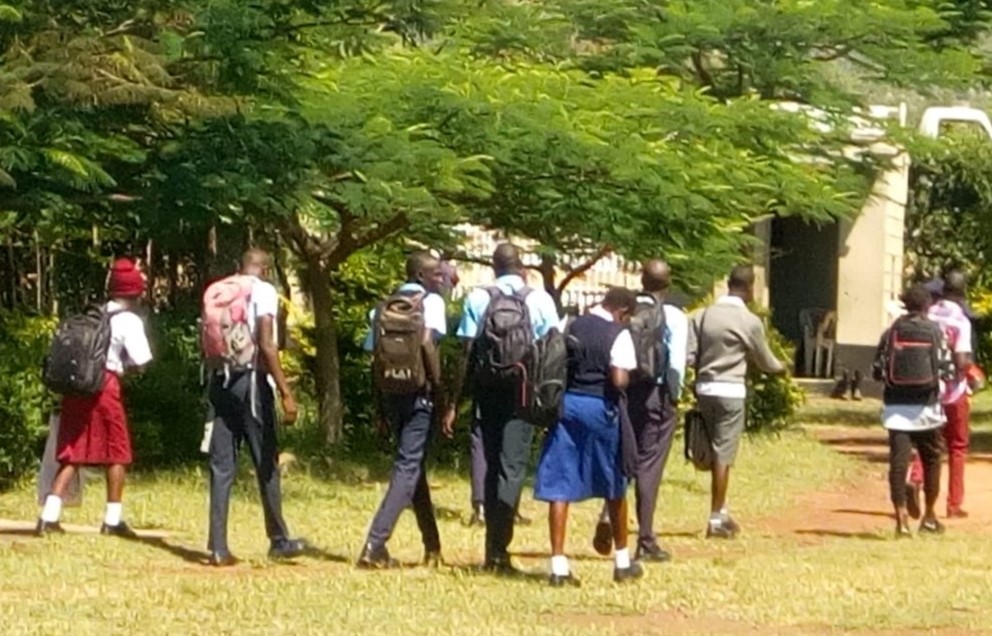These children are off to secondary school; no longer a dream for the destitute but an opportunity open to every child.

There have been some very exciting developments at National Government level regarding education in the last year. The Education Cabinet Secretary, George Magoha, has been very vocal about the initiative which has made available Sh3 billion (the Elimu Fund) to aid underprivileged children deserving of a secondary school place to attend where, under the current system, they would be unable to attend owing to poverty. The initiative is aimed at needy candidates scoring 280 marks or above in the Kenyan Certificate of Primary Education (KCPE) or for vulnerable candidates like orphans or those with special needs and disabilities, who scored below 280 marks. The government aim to give out 9,000 scholarships in this way.
Magoha said, “The fund is meant to ensure that the very best students are able to join high school even if they are from disadvantaged backgrounds.” This is absolutely wonderful news and we are delighted. However, the programme also goes on to explain that all children who took the KCPE examinations should transition to secondary school with no exceptions and the government will pursue the parents of those not in school. The worry is that, currently, secondary schools, mostly boarding, just don’t have enough places available for this sudden influx of students. There are not enough teachers or, in some cases, physically large enough classrooms or indeed enough classrooms at all. Without the teachers and facilities to cope with the numbers, secondary school classrooms will become as overcrowded as primary schools. The quality of teaching will drop and students will get ‘lost in the crowd’, especially those with special needs. Students who have achieved significantly lower than the pass mark of 280 will really struggle whereas vocational studies and apprenticeships would have been much better for them. As so often happens, the ideas are good but the move to implement such schemes comes before the proper foundations are in place.
Regardless of the issues though, I cannot help but feel joy at this initiative, that children in poverty will not be overlooked because of their circumstances, and at the thought that young girls who have been pushed into early marriage might now escape because of their legally required attendance at school.


